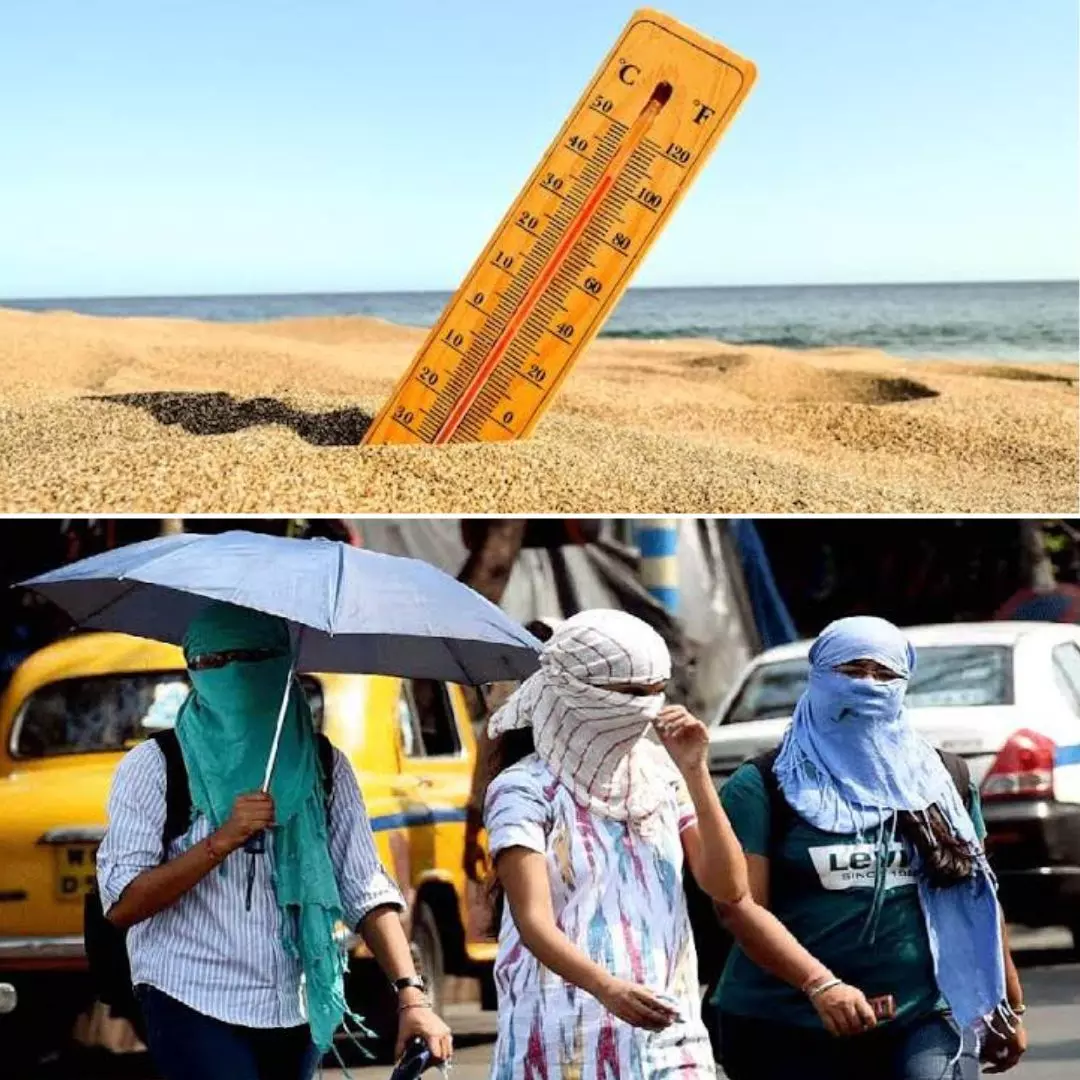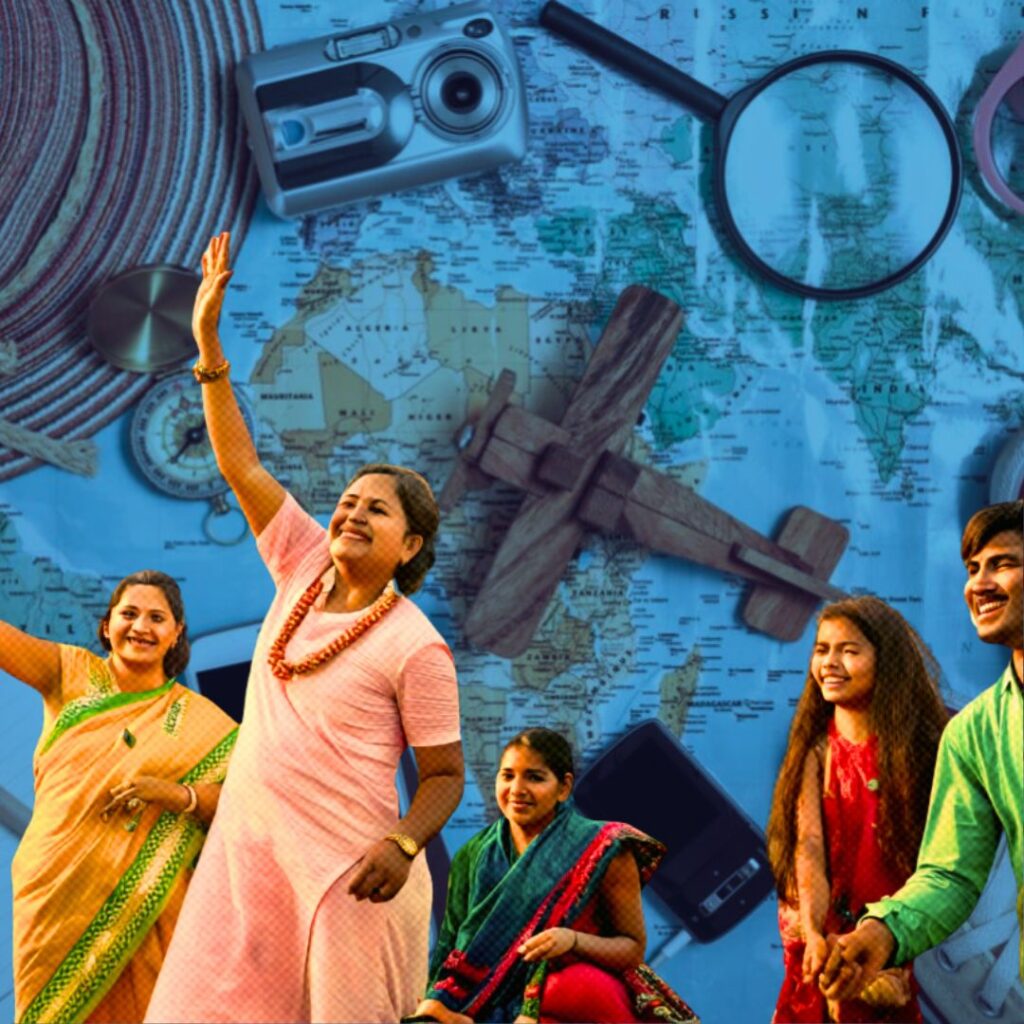A heat wave is defined as a period of abnormally high temperatures, more than the normal maximum temperature during the hot weather season. Over the coming few months, India is expected to experience intense heat waves that would place people’s lives and livelihoods at risk.
In 2022, the heatwave damaged several crops and drastically affected the nation’s economy. To avoid such incidents this year, the Indian Meteorological Department (IMD) and the Ministry of Health and Family Welfare have issued a health advisory for the people.
Unexpected Waves Of Heat
The weather office has conveyed that they expect an enhanced probability of heat waves in most parts of the country until at least May 31. Early onset of hot weather has already pushed electricity demand to near-record levels and pushed the farm ministry to set up a panel to monitor its impact on the wheat harvests, which was expected to reach a record this year. In 2022, India suffered one of the worst heatwaves it had faced in more than a century, which drastically impacted people’s lives and the country’s grain harvests and exports.
In 2023, the month of February, which usually marks the ebbing away of winter and the arrival of pleasant spring weather, witnessed unusually high temperatures in many parts of the country. The monthly average maximum temperatures across the country were the highest recorded for February since 1901. The temperatures in March will then be a crucial decisive factor for the harvesters and the country’s export capacities.
India has always been noted to be among the most vulnerable countries to climate change. The number of Indian states hit by heat waves since 2015 has more than doubled by 2020. It has consistently been intensifying ever since, and the phenomenon has made it necessary for people to safeguard themselves against rising temperatures.
Staying Hydrated & Avoiding Outdoors
Noting that the temperatures have reached unusual levels, the Union Health Secretary Rajesh Bhushan wrote to the Chief Secretaries and Administrators of all states/union territories to closely monitor heat-related illnesses starting from March. Soon after the IMD issued its first heat advisory for 2023, the Ministry of Health and Family Welfare also released a list of dos and don’ts to protect oneself against heat waves. A report by Indian Express enlists said measures,
- Staying adequately hydrated. A top priority during hot and harsh summer weather is that the body remains hydrated at all times. The advisory suggests drinking water frequently apart from carrying water during travels. Additionally, the consumption of salted drinks (lemon water, buttermilk), fruit juices, or Oral Rehydration Solution (ORS) is also recommended.
- Stay indoors as much as possible. It is advised not to venture out much between the hours of 12 pm to 3 pm when sun exposure is the highest. Try to go to more shaded places and use window shades, curtains, fans, coolers and AC. While stepping outdoors, ensure the head is covered using a “cloth, hat, umbrella, cap, or a towel.”
- Parked vehicles tend to absorb more heat, so it is advised not to leave children in them. Among those who are most at risk during a heatwave include people working outside, those with heart disease or high blood pressure, pregnant women, young children, and those above 65 years of age.
- Switch to loose-fitting, lightweight, light-coloured cotton clothes that help the body breathe better and regulate sweating and heat dissipation. It is also advised to take frequent cold showers to keep the body cooled down.
- Among the beverages that must be avoided include alcohol, tea, coffee, and carbonated soft drinks. Use of sweetened beverages should be strongly discouraged as they tend to dehydrate the body osmotically further. Fresh fruits such as watermelon, cucumber, lemon, and orange can be included in the diet.
- People have been advised to make use of options such as rainwater harvesting and solar energy for self-sufficiency. Even in the case of energy and water shortages, such conservation techniques can come to help.
Also Read: Feel The Heat! Brutal Heatwave In India Leaves Millions Struggling To Cope
https://thelogicalindian.com/h-upload/2023/03/02/500x300_230194-untitled-design.webp
Trending
2023-03-02 09:38:46.0
From Tracking Weather Alerts To Avoiding Sugar: Centre’s Health Advisory For Heatwave











